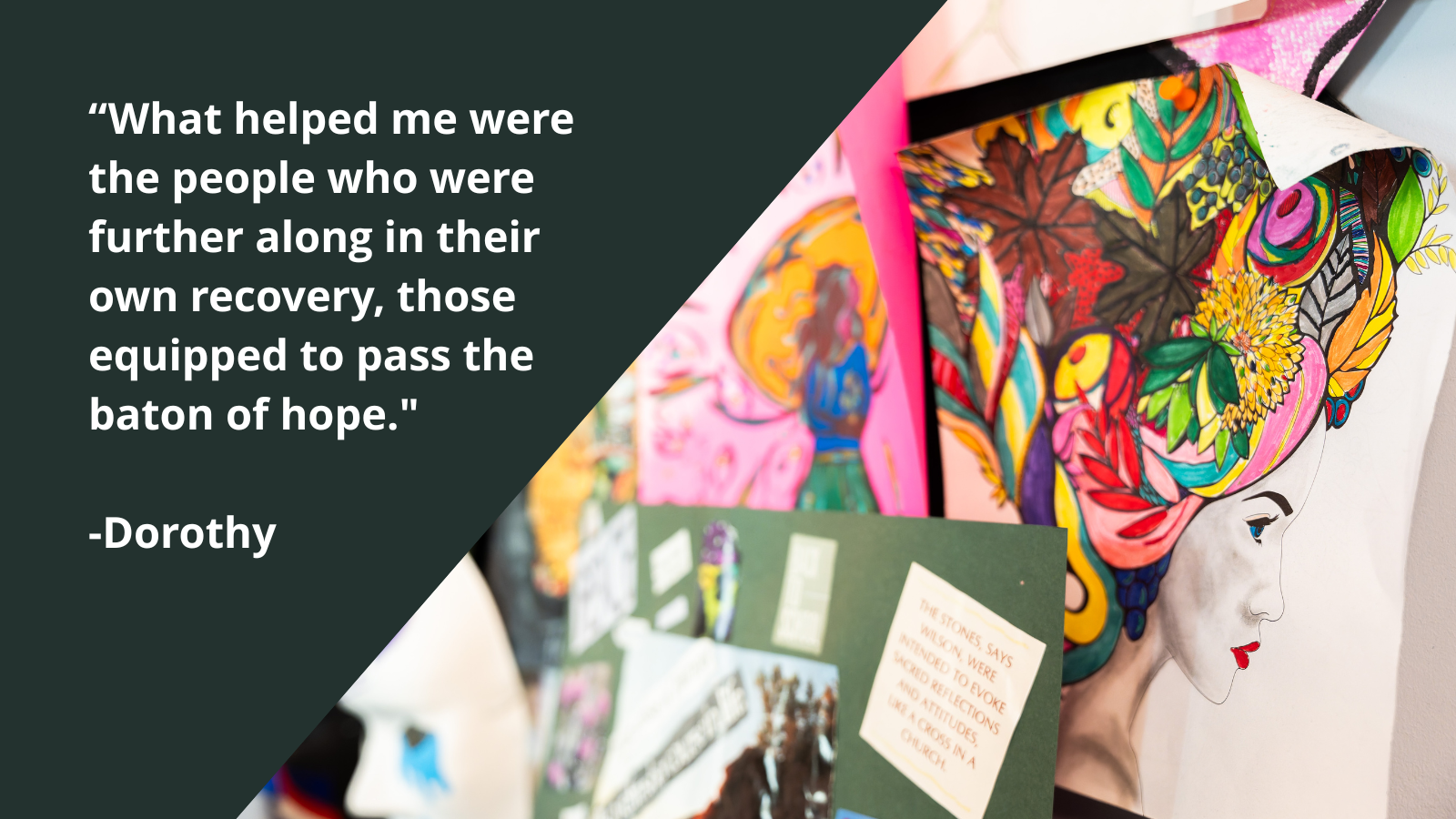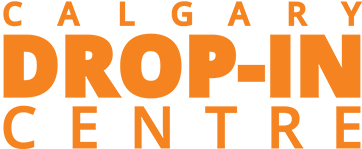Walking Beside Someone’s Recovery
November 20, 2025

This week marks National Addictions Awareness Week, a time when communities across Canada come together to deepen their understanding of addiction, recovery, and the humanity behind the statistics.
At the Calgary Drop-In Centre, this week holds special meaning.
Every day, we meet people navigating some of the most vulnerable moments of their lives, and our Health and Recovery programs are built on the belief that healing begins with compassion, dignity, and support that meets people exactly where they are.
National Addictions Awareness Week is an opportunity to amplify the stories, voices, and expertise of those who live and work within recovery. People like Dorothy, one of our Recovery Care Workers, whose lived experience fuels her ability to support others with empathy and authenticity.
We sat down with Dorothy to talk about the meaning of this week, the misconceptions that keep stigma alive, and the power of peer support in someone’s recovery journey.
What does National Addictions Awareness Week mean to you personally?
Growing up and early in my own active addiction, I carried a lot of preconceived ideas about what addiction looked like. I believed it happened to other people, people whose lives I assumed were nothing like mine.
Awareness changes that. Addiction does not discriminate. It is a multifaceted challenge that can impact anyone, regardless of background, identity or circumstance. This week is about replacing false narratives with truth.
It is about breaking stigma by putting real faces and real stories to a word that often gets used without understanding. Knowledge is power, and awareness helps people see addiction for what it truly is; a complex experience, not a moral failure.
What misconceptions about addiction do you wish people understood?
Addiction can show up in countless ways, and it is not just substance use. It can be gambling, shopping, work, social media – anything that takes over your life and becomes an uncontrollable need, despite the harm it causes.
One of the biggest misconceptions is that consequences, ultimatums, or tough love can force someone into recovery. That’s simply not how sustainable change works. I embraced recovery when I was ready.
Every person who comes through our doors is someone’s sister, son, brother, daughter. They are loved. And at ROSC, we meet people when they are often exhausted, desperate and at a volatile juncture. This is an opportunity for meaningful, client-centred change, welcoming them in one of the most vulnerable moments of their life.
When you think about your own journey, what message do you hope people take away this week?
I hope people stay curious and keep an open mind. Maybe this week sparks someone to say, I have a loved one who is struggling, what can I do, what resources are out there, where do we start?
Awareness can be the catalyst for real, authentic transformation.
How has stigma impacted you or the people you support, and what does breaking that stigma look like?
Stigma silences people. It kept me quiet and isolated for a long time. What helped me were the people who were further along in their own recovery, those equipped to pass the baton of hope.
At the DI, breaking stigma starts with our team. We are trauma-informed, rooted in health and wellness, and committed to addressing addiction as a complex health issue. I’m privileged to work alongside my colleagues whose skills and expertise are invaluable to providing essential care and cultivating relationships across the broader community.
Just as we cannot do this alone, neither can the system. Integrated partnerships strengthen outcomes, improve continuity of care, and extend support in significant ways.
What inspired you to become a Recovery Care Worker?
I was studying psychology when addiction tightened its grip on all areas of my life. I always had a passion to pursue a career within this field, but I came to a stark realization that I could not help anyone, without first getting help myself. There’s a quote that says, ‘We are given two hands, one to help ourselves, and one to help others.’ That became and continues to be my north star.
This work is my purpose. Recovery looks different for everyone, and I honour that. Someone once told me, it is their bus of change, you are just a passenger. I show up to walk beside those struggling and aim to empower them to work toward where they want to go.
What moment confirmed you were meant to do this work?
My journey has not been linear. I’ve had had setbacks, moments of fear and shame, and times where I have to confront myself with brutal honesty. The more I healed, the more I realized that my experience was not something to be ashamed of, it was something I could use to help others.
There was a validating moment shortly after joining the ROSC team, when I connected with a client who, like many faced many barriers to sobriety. They shared how our conversations helped them feel less alone, more grounded, and able to embrace the challenge of rebuilding their life. This reflects the power of authentic presence, the importance of connection, and the impact that empathy and guidance can have when offered alongside hope. This and moments every day reinforces this isn’t just a job, it’s where I’m meant to be.
From your perspective, what difference can peer support make in someone’s recovery journey?
Peer support is powerful because it comes from lived experience. I may not know every detail of someone’s story, but I understand the feelings- the fear, the shame, and now, hope.
Sometimes profound healing is simply having someone who sees you and hears you. Someone who says, I have been there, and you are not alone.
Lived experience is invaluable. It bridges a gap that other approaches simply cannot.
If you could share one message with the community this week, what would it be?
You don’t have to look hard to see the prevalence of addiction and mental health. Awareness matters because of how many people are affected, directly and indirectly. Addiction has a ripple effect on loved ones, our community, and greater society.
But recovery creates a ripple effect too, a positive one. I’m grateful for my recovery journey and the change to support others as they navigate their own and discover their potential. Keep an open mind. Everyone has a story.
What would you like people to do differently, this week and every week, when it comes to understanding addiction?
We can do better, human to human. We lose loved ones every day. To honour their memory and offer genuine support, we must commit to shining a light on this complex issue; this awareness will illuminate recovery as a beacon of hope. Ultimately, compassion, understanding, and a willingness to learn go a long way in creating the safe spaces and opportunities needed to welcome those ready to seek support.
At the Calgary Drop-In Centre, we are committed to building a community where recovery is possible, stigma is challenged, and healing is met with compassion. This week and every week we honour the courage of people like Dorothy, who not only transform their own lives, but help others transform theirs.
Recent Posts
February 10, 2026
December 11, 2025




